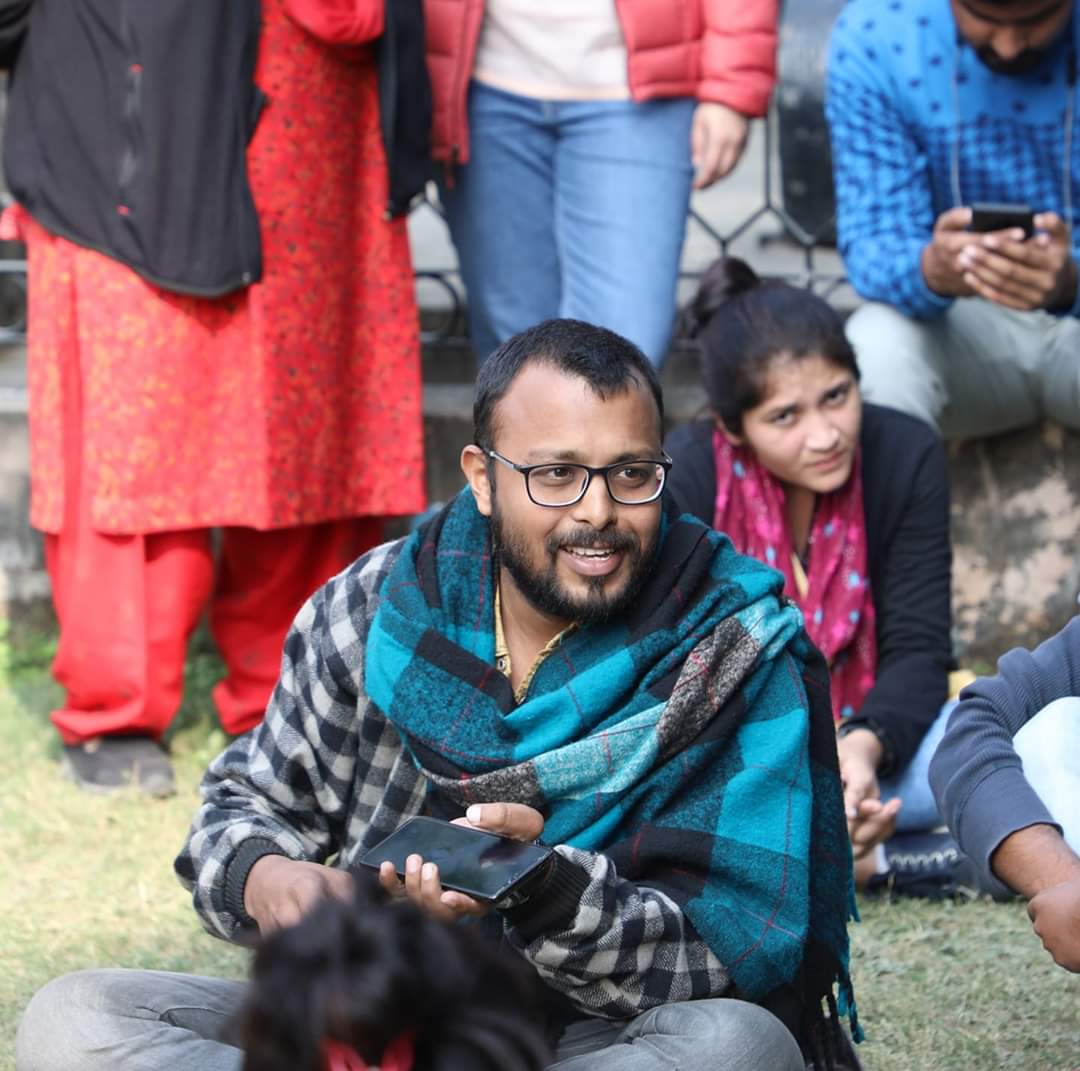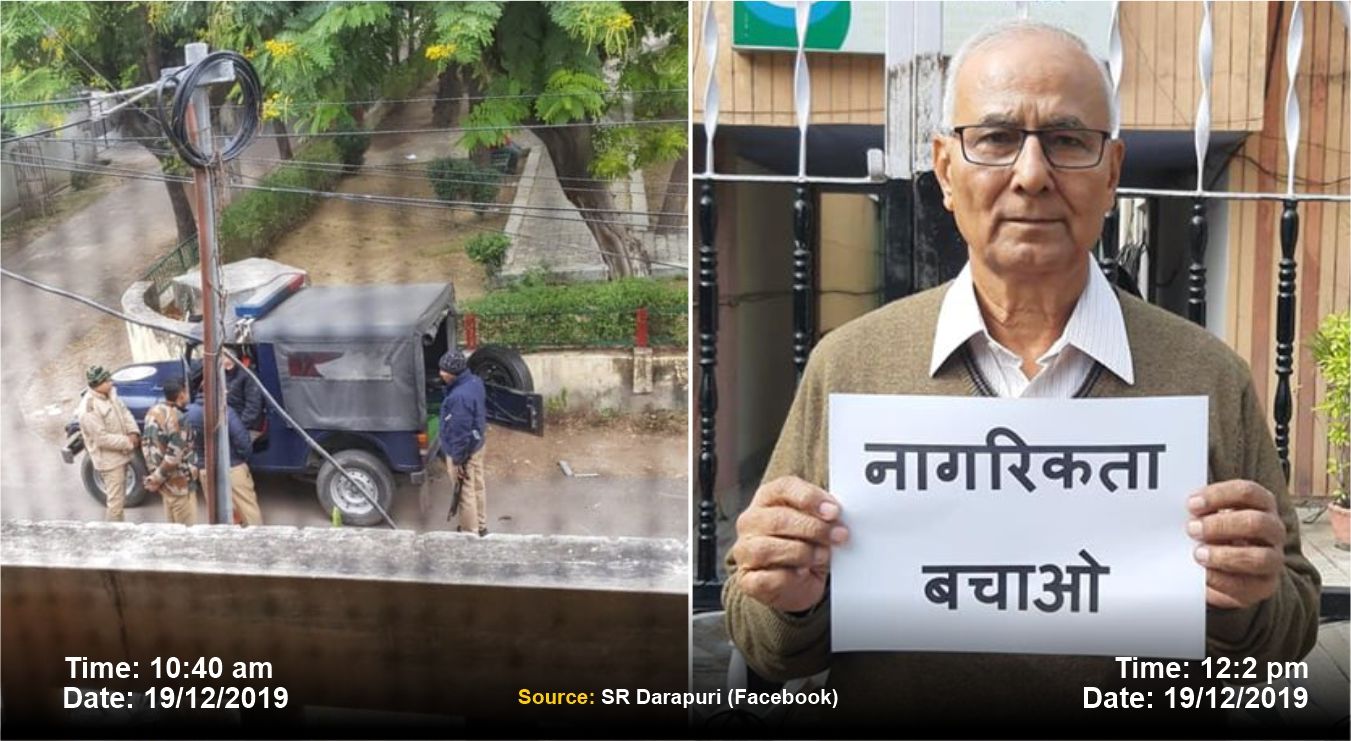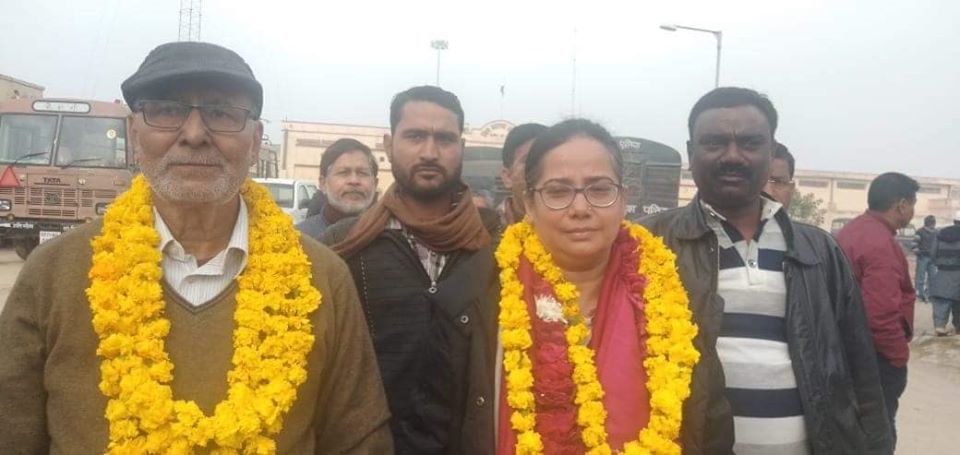“They didn’t give me a blanket, kept me without food for two days”
Ex-IPS SR Darapuri, who was arrested following the December 19 violence, was slapped with serious charges like attempt to murder. He was later released owing to the inadequacy of proof provided by the Lucknow police

“The Lucknow police had firstly put me under house arrest. They then took me to the police station and arrested me there. When I felt cold during the night, I asked for a blanket, but I was told that I shan’t be given one. Not only this, they also kept me without food for two days,” said ex-IPS officer, SR Darapuri, 77, who had served the force for 32 years.
Following the December’s 19 violence during the anti-CAA (Citizenship Amendment Act) protests in Lucknow, the police had arrested several individuals for conspiring to and instigating violence. Among the arrested were many individuals who were either members of the civil society or were social workers. However, due to lack of evidence, most of them were later released on bail, including Darapuri, who was released on bail after a period of 19 days.
After coming out of jail, he has put serious charges on the Lucknow police. “While the anti-CAA protests were to take place on December 19, I was taken under house arrest for the same day and had to remain in, protesting peacefully from my house’s verandah with a placard,” he said.
This claim of Darapuri is supported by his Facebook posts. On the morning of December 19, at 10: 40 am, Darapuri had posted with his pic on Facebook: “Today morning’s police siege for my detention by the government fearing the protest ‘Bharat Bachao’.” Thereafter, at 12 noon, he shared another photo on Facebook wherein he held up a placard stating ‘Nagrikta Bachao’. Sharing this, he had mentioned, ‘protest continues despite the house arrest.’

“After keeping me under house arrest for the whole day, police came up to me on December 20 and told me to come to the police station with them. When I inquired whether I was being arrested they said no and requested me to accompany them. Thereafter, they detained me in the police station till 5:30 pm when they took me to the Hazratganj police station in a jeep. When I asked the inspector at the Hazratganj police station whether I was under arrest, he affirmed informing me that I was the 40th person to be arrested. I asked to be allowed to consult my lawyer and was declined. I was assigned a random corner in the station.”
“When the night fell and I began feeling cold, I asked them for a blanket to which they replied that I shan’t be given one. Somehow, I managed to spend the night. On December 21, at 5 pm, I was taken, along with other people, to the magistrate and from there to the jail.”
Darapuri also alleged that in his case, Section 161 of the Criminal Procedure Code, which called for recording the testimony of the accused after arrest was overlooked. He alleged that it was the police that wrote up his testimony without his approval.
The police have filed a case against Darapuri under 18 different sections of the IPC that include some serious charges like Section 307 (attempt to murder), Section 436 (use of explosives during violence), Section 120 b (criminal conspiracy). Although these crimes are non-bailable, Darapuri was released on bail by the court owing to the inadequacy of proof provided by the Lucknow police, and his past record.
Informing about the court proceeding, Kamlesh Singh, Darapuri’s lawyer, said: “During the trial, the court had summoned the inspector in charge of the Hazratganj police station and the case’s investigating officer, Dhirendra Pratap Kushwaha. The court had demanded him whether the anti-CAA protest was unconstitutional. The investigating officer’s reply was that the state was then under Section 144 to which the court asked him back whether he knew what Section 144 meant. The officer replied that under Section144 if four people stand together in a group they may be arrested.”
“So, the court asked whether four people standing in front of a tea stall be arrested to which he replied saying that although they may not be arrested but those who held banners and shouted slogans were deemed to be arrested.” To this, the court objected and informed that in a democracy, people have a right to dissent, they must not be stopped. The court also asked for the video recording whereby it could be established that Darapuri indeed had been physically present during the violence, but since the police couldn’t furnish such evidence, he was released.”

Several people arrested after the December 19 violence got similarly released, including Congress leader Sadaf Jafar, activist Deepak Kabir and Robin Verma. At the same time, across the state, in other districts too, people are being released on the grounds of insufficient evidence. Two students Samim Abbas and Kamil Abbas of Muzaffarnagar madarsa, who were arrested on December 20, were also released later on.
Although all these individuals were arrested under non-bailable offence sections, the police failed to provide solid evidence to court to support the charges. So, the police investigation pertaining to the matter seems questionable. Similar doubts about police’s method of operation are also aired by Nitin Mishra, one of the lawyers who fought the case for Darapuri.
“After the violence in Lucknow, four FIRs were lodged in four different police stations whereby police continued to add names in the list. For example, even though Darapuri was under house arrest, he got arrested after the episode and slapped with such serious charges, lack of evidence notwithstanding. This clearly shows that the Uttar Pradesh police has made unjustified use of its power. Not only the police’s investigation, but also its FIRs stand falsified.”

